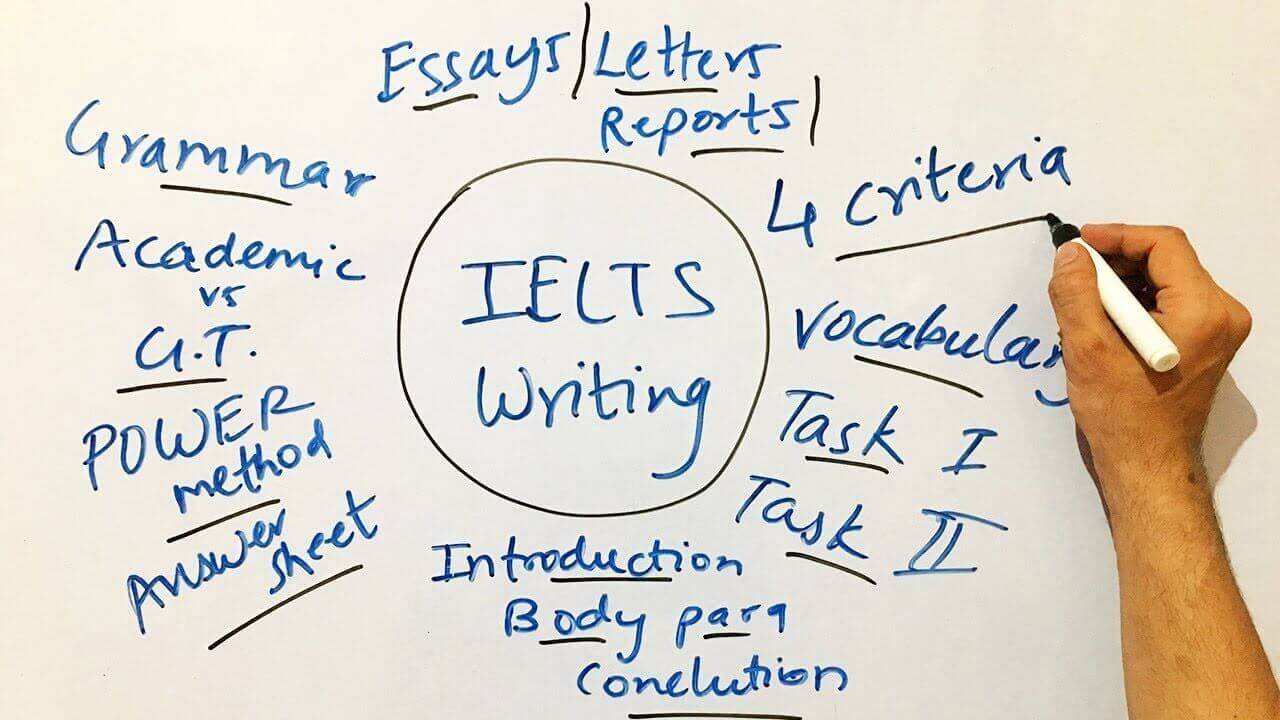Intro to the IELTS Writing Paper
Intro to the IELTS Writing Paper Like the rest of the exam, the IELTS academic writing paper takes some the skills and competencies required for...
Flexible group courses for everyday communication and fluency.
Academic EnglishPrepare for university study with advanced academic language skills.
Business EnglishEnglish for professional communication in corporate and workplace settings.
Private LessonsOne-to-one lessons tailored to your goals, schedule and interests.
Language ExcursionsLearn English while exploring Cape Town with your teacher as your guide.
Get the score you need with targeted strategies and expert support.
Cambridge ExamsPrepare for the FCE or CAE with structured, high-quality training.
TOEFL PreparationBuild confidence and test skills to succeed in the TOEFL exam.
Personalised one-to-one English lessons delivered online, on your schedule.
Corporate GroupsLive online training for teams, customised to your organisation’s needs.
English for Tech ProfessionalsSelf-paced English course designed for developers, engineers, and IT teams.
Qualify to teach English in South Africa or abroad with this practical course.
Blended Certificate in TEFLCombine online study with hands-on classroom experience in Cape Town.
Learn in a historic university campus right in the city centre.
Tours and ActivitiesExplore Cape Town and make friends through weekly excursions.
Social ProgrammeJoin our schedule of fun events, outings and conversations.
Getting AroundTips and tools for navigating the city like a local.
Social and DigitalStay connected online and through our vibrant student community.
A friendly, sociable student house just a short walk from school.
Adderley StudiosModern, secure apartments in the heart of Cape Town.
HomestayLive with a local family and experience South African culture.
Hotels & AparthotelsIndependent options for comfort, privacy and flexibility.
All tuition and accommodation fees in one clear table.
Booking InformationWhat to expect before, during and after you book.
Instalment PlansFlexible payment options for long-term bookings.
User LoginView your bookings, make payments, and manage your details.
Visa options and support for international students coming to South Africa.
Insurance & TravelWhat you need to know about travel, insurance and staying safe.
MyELC AppAccess your timetable, progress and more on the student app.
Arrival and OrientationHow we help you settle in on your first day in Cape Town.
How to request certificates, transcripts, or proof of enrolment.
Terms & ConditionsThe small print — bookings, cancellations, and more.
Contact UsGet in touch with the ELC team by email, phone or WhatsApp.
Privacy PolicyHow we protect your data and respect your privacy.
What makes ELC and UCT a great place to learn English.
About the University of Cape TownSouth Africa’s leading university and home to the ELC.
About the English Language CentreWho we are, what we offer, and how we teach.
Our TeamMeet the teachers, support staff and leadership team behind ELC.
Our international quality standards and endorsements.
Media & PressNews coverage, interviews and media mentions of ELC.
TestimonialsWhat our students, partners and teachers say about us.
BlogUpdates, stories and insights from the ELC community.
Flexible group courses for everyday communication and fluency.
Prepare for university study with advanced academic language skills.
English for professional communication in corporate and workplace settings.
One-to-one lessons tailored to your goals, schedule and interests.
Learn English while exploring Cape Town with your teacher as your guide.
Get the score you need with targeted strategies and expert support.
Prepare for the FCE or CAE with structured, high-quality training.
Build confidence and test skills to succeed in the TOEFL exam.
Personalised one-to-one English lessons delivered online, on your schedule.
Live online training for teams, customised to your organisation’s needs.
English for Tech Professionals
Self-paced English course designed for developers, engineers, and IT teams.
Qualify to teach English in South Africa or abroad with this practical course.
Combine online study with hands-on classroom experience in Cape Town.
Learn in a historic university campus right in the city centre.
Explore Cape Town and make friends through weekly excursions.
Join our schedule of fun events, outings and conversations.
Tips and tools for navigating the city like a local.
Stay connected online and through our vibrant student community.
A friendly, sociable student house just a short walk from school.
Modern, secure apartments in the heart of Cape Town.
Live with a local family and experience South African culture.
Independent options for comfort, privacy and flexibility.
Use our Course Wizard to match your goals and level to the best option
Course WizardAll tuition and accommodation fees in one clear table.
What to expect before, during and after you book.
Flexible payment options for long-term bookings.
View your bookings, make payments, and manage your details.
Visa options and support for international students coming to South Africa.
What you need to know about travel, insurance and staying safe.
Access your timetable, progress and more on the student app.
How we help you settle in on your first day in Cape Town.
How to request certificates, transcripts, or proof of enrolment.
The small print — bookings, cancellations, and more.
Get in touch with the ELC team by email, phone or WhatsApp.
How we protect your data and respect your privacy.
What makes ELC and UCT a great place to learn English.
About the University of Cape Town
South Africa’s leading university and home to the ELC.
About the English Language Centre
Who we are, what we offer, and how we teach.
Meet the teachers, support staff and leadership team behind ELC.
Our international quality standards and endorsements.
News coverage, interviews and media mentions of ELC.
What our students, partners and teachers say about us.
Updates, stories and insights from the ELC community.

If you ever have the chance, google the band Modest Mouse and listen to their music. Just so that you can never do it again.
I bring this up because reading an essay where transition signals are used incorrectly is like being subjected to a lot of unpleasant noise. To recap, transition signals are words and phrases that, when used correctly, enhance the flow of an essay. Read our post introducing some key types of transition signals here. In this article, we’ll learn how to tune our instruments and give a stellar performance that doesn’t hurt anyone’s ears, by learning what not to do.
As the expression goes, “too much of a good thing” (Christmas pudding, full moon dancing, etc.) can be negative. The same applies to transition signals. Some students get so excited about using them that they use more than necessary and this creates text that is choppy and confusing. Here is an example of this, plus a correction…

Luckily there are ways to avoid overusing transition signals, for instance:
This doesn’t make sense as the second sentence implies that the average student rating was related to the teacher’s encouragement of students to rate the course. So, the transition signal is unnecessary.
I’ve found that students tend to muddle Cause & Effect transition signals (because, since, thus, due to, etc.), which state that one thing is the result of, or logically leads to, another thing. Perhaps this is because some Cause & Effect sentences can read a bit like the brainteaser: “Which came first? The chicken or the egg?” Most often though, the cause and the effect become clear if you read the sentence carefully. Take a look at this example…
.jpg?width=630&height=718&name=Blog%20infographics%20(2).jpg)
The word “result” seems to resonate more with my students than “effect”, so if it helps to rather call them Cause & Result transition signals, go for it.
Follow these tips to avoid muddling the order when using transition signals:
Incorrect: Overeating is a result of obesity.
Correct: Obesity is a result of overeating. / Overeating results in obesity. Incorrect: Respiratory problems can cause air pollution.
Correct: Respiratory problems can be caused by air pollution. / Air pollution can cause respiratory problems.
No man is an island, and neither is a transition signal. Indeed, the purpose of transition signals is to link pieces of text (the clue is in the name – transition signal). Therefore, it’s important to give as much love to the sentences, clauses, and paragraphs that transition signals connect as the transition signals themselves. As an ESL teacher, I’ve found that students can have difficulty with getting this surrounding grammar right, as the below example shows:
.jpg?width=630&height=718&name=Blog%20infographics%20(3).jpg)
It’s important to remember that different transition signals follow different grammatical rules. For example, transition signals like “although”, “though”, “even though”, and “whereas'” are classified as “subordinating conjunctions.” This is a fancy way of describing a word or phrase that adds more information about the big guy (or main clause).
It’s helpful to remember that because a subordinating conjunction’s job is to add information to the main clause, it means that these transition signals can never, ever, ever (just one more “ever” for good measure) stand alone. If they do, we have a grammatically dire situation called a “sentence fragment” (and all the king’s linguists raced frantically to put the broken words back together again).
A main clause can be distinguished from a dependent clause because it can stand independently. Study this example, which shows how our very helpful, neighbourly subordinating conjunction transition signals link main/independent and dependent clauses:
.jpg?width=630&height=718&name=Blog%20infographics%20(5).jpg)
“Okay teacher,” I hear you thinking. “That’s easy because all the transition signals in the same category (Cause & Effect, Emphasis, Addition, etc.) must follow the same grammar, right?” Alas, no. It is better to learn the grammar for transition signals individually, rather than per category, since the category of the transition signal does not always determine its grammar.
Hence, we have Comparison & Contrast transition signals such as “in contrast” starting a new sentence, while others such as “however” that can act as subordinating clauses or start a new sentence. Other transition signal categories are similarly hodgepodge when it comes to grammatical rules. Not confusing at all!
As we have seen, clause connectors are used to connect two clauses to make one sentence – these connectors use a comma. Sentence connectors, on the other hand, connect two feistily independent, complete sentences using either a full stop or semi-colon, and are followed by a comma. Here are examples with transition signals that function as sentence connectors:
It is commonly accepted that children acquire languages with more ease than adults. Similarly, studies show that children have more musical talent than adults.
It is commonly accepted that children acquire languages with more ease than adults; nevertheless, adults should not be discouraged and instead embrace learning a new language. (“Nevertheless” can also connect two sentences with a full stop). It is commonly accepted that children acquire languages. Despite this, not all children are given the opportunity to realise their linguistic potential.
Some transition signals can change form, which can puzzle students. For example, “in spite of” can be used on its own, or with “whether”. On the other hand, “despite” can be used with “this”, “the fact that”, or with a gerund.
Whichever transition signal variation you choose, be aware that the surrounding grammar must change too, as can be seen here:
.jpg?width=630&height=718&name=Blog%20infographics%20(4).jpg)
In conclusion, it is possible to avoid falling into transition signal manholes if you tread carefully and follow our expert tips.
By Leigh-Anne Hunter
For more ideas, and real life examples, see Master Transition Signals.

Intro to the IELTS Writing Paper Like the rest of the exam, the IELTS academic writing paper takes some the skills and competencies required for...

How to Write a CV That Gets You Noticed: A Step-by-Step Guide “CV” stands for Curriculum Vitae, which loosely translates from Latin as ‘the course...

Paraphrase like a Pro Did you hear? Hip-song singer Nicki Minaj was fined a whopping $450,000 after being found guilty of plagiarising a song by...